2023 SoLAR Executive Committee Nominees
January 20, 2023
Current SoLAR Executive Committee for 2023
President – Bart Rienties, The Open University, UK
Treasurer – Isabel Hilliger, Pontificia Universidad Católica de Chile, Chile
There are 11 candidates for SIX available Member At-Large Positions. 2 candidates are current Executive Members running for their second and final term (* denotes a current Executive Member).
There are 3 candidates for ONE available Student Member Position.
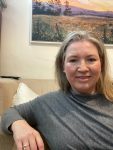 Kathryn Bartimote, Australia
Kathryn Bartimote, Australia
University of Sydney
Interest in Learning Analytics (Research Area, etc.) & Interest in serving on the SoLAR Executive Committee: One of my key research themes is theory and learning analytics. On this topic, I am co-editing a forthcoming book with SoLAR colleagues, and co-convene an annual LAK pre-conference workshop where LAK23 will be the 4th edition. I have always been struck by the uniqueness of SoLAR in how it brings together researchers and practitioners, and in the very concrete ways that gender balance is prioritised and valued. It has also been pleasing to see the growth of geographically-based SIGs in recent years, adding to the diversity and strength of our community. If elected to the Committee I will continue to support the extension of our inclusion agenda. One way I hope to do this is via initiatives that enable and encourage even more interdisciplinary engagement with those yet to interact with LA from relevant fields and disciplines. Secondly, given my background in institutional leadership, I am particularly interested to explore how SoLAR might be able to develop mechanisms to further influence policy in jurisdictions and institutions e.g. through position papers, by convening conversations, etc. And thirdly, as part of the Executive I would also be interested to help facilitate joint initiatives across groups e.g. SIGs and Events, and SIGs and Publications.
Biography: Kathryn has been a member of SoLAR’s SIG Working Group since 2020, and is active in interactions with SIG leaders and championing the role of SIGs within the Society. Kathryn was on the organising committee for LAK18 in Sydney, and initiated her university’s institutional membership with SoLAR and continued as its representative until 2022 when she moved from a central institutional leadership role to a regular faculty position. Some notable achievements whilst in the role of Head Quality and Analytics at the University of Sydney (USyd) were delivering an online survey system, the establishment of data access processes, convening twice-yearly roundtable sessions for researchers using university-held student data, and sponsoring a number of institution-wide learning analytics projects of which the most significant was the creation of an educational databank. Since her recent move to the Sydney School of Education and Social Work, Kathryn is now research coordinator at the Centre for Educational Measurement and Assessment (CEMA). She is also deputy chair and chair of two of USyd’s human research ethics committees, and regularly gives seminars and advice across the arts and social sciences on ethics. Kathryn currently teaches in the areas educational leadership, educational psychology, and research methods; and supervises PhD students in the areas of assessment and educational psychology.
Working Group Interests: I would be pleased to continue my involvement in the SIG Working Group, and am interested to contribute to the areas of Events and Publications. I am willing to chair a group.
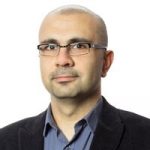 Okan Bulut, Canada
Okan Bulut, Canada
University of Alberta
Interest in Learning Analytics (Research Area, etc.) & Interest in serving on the SoLAR Executive Committee: As an educational researcher, I strongly believe in the potential impact of learning analytics and innovative learning technologies on the future of our education. Currently, all the courses I teach in the Measurement, Evaluation, and Data Science at the University of Alberta involve a variety of learning analytics applications (e.g., generating automatic feedback for students based on assessment data extracted from our learning management system). Similarly, my research program focuses on the theoretical and practical aspects of learning analytics in K-12 and higher education contexts. My goal is to promote the highest standards of academic research in learning analytics by developing learning analytics projects for diverse stakeholders, including students, instructors, parents, administrators, and other educational practitioners. The Society for Learning Analytics Research (SoLAR) is a well-recognized organization focused on the role and impact of analytics on teaching, learning, training and development. By serving on the SoLAR Executive Committee, I hope to (1) build a stronger connection between the learning analytics community across Canada and the SoLAR community in the upcoming years, (2) play an active role in the promotion of learning analytics applications, and (3) enrich my own understanding of learning analytics by collaborating with colleagues in the SoLAR community.
Biography: Dr. Okan Bulut is an Associate Professor of Measurement, Evaluation, and Data Science and an active member of the Centre for Research in Applied Measurement and Evaluation at the University of Alberta. Dr. Bulut teaches graduate-level courses focusing on educational and psychological measurement, psychometrics, learning analytics, and statistical modeling. Also, Dr. Bulut regularly gives workshops and teaches online courses on a variety of topics, such as educational data mining, big data modeling, data visualization, and statistical data analysis using software programs like R, SPSS, JASP, and Microsoft Excel. His current research interests include data mining applications, learning analytics, digital assessments, and statistical programming using the R programming language.
Working Group Interests: Education Working Group and Communications Working Group
 Graham Douglas, Canada
Graham Douglas, Canada
University of British Columbia
Interest in Learning Analytics (Research Area, etc.) & Interest in serving on the SoLAR Executive Committee: I am drawn to Learning Analytics because it works. Learning analytics creates a wonderful approach to improving education. I love being able to offer faculty members data-based analysis on how they have helped students and where their students struggle. Having a solid research foundation helps us experiment and develop new educational methods and prove how effective an approach is for a student. I hope to be able to support the development and dissemination of this research as I do really believe it can help education.
Biography: I am grateful to be able to help. I have been developing web-based solutions in a University context for over ten years. That experience has taught me a lot about intersections between faculty, students and administration in a digital context. I intend to leverage my technical foundation to help bring Learning Analytics research into more practical and accessible venues. I live on Vancouver Island with my three children and wife and hope to get to learn more about you and our community.
Working Group Interests: The Website Working Group is my area of expertise and where I would be of greatest impact. I’ve developed hundreds of websites with WordPress and would be able to help make sure that we are on solid footing both technically and legally. I have been fortunate to have a large amount of experience working with user privacy and accessibility regulations on both Canadian and US projects. I will be able to help create and connect the pieces that can make the difference between research being celebrated or missed. I truly believe Learning Analytics will become increasingly important, and I hope to be able to help where I can.
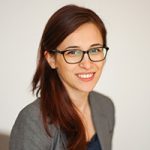 *Ioana Jivet, Germany
*Ioana Jivet, Germany
Goethe University Frankfurt & DIPF
Interest in Learning Analytics (Research Area, etc.) & Interest in serving on the SoLAR Executive Committee: My research focus centres on human aspects of learning analytics. I am particularly interested in designing student-facing LA, understanding learner sense- and decision-making when using LA and the factors that influence these processes. With these insights, we can derive design requirements for adaptive LA interventions for increased goal achievement in diverse learning environments. My curiosity for teaching and learning started with my experience as a member and soft-skills trainer in a European student association with over 3300 volunteers. I served as secretary general on its international board and coordinated the work of different committees. This experience has fueled my interest in building and engaging in a community of like-minded individuals – something I also discovered in SoLAR. I currently serve as Secretary of SoLAR and co-chair the Communications and Website WGs. I am one of the hosts of the SoLAR webinar and manage the monthly newsletter. I would love to continue doing this work in the next two years. I believe that the potential of learning analytics to optimise learning cannot be fulfilled without the involvement of all its stakeholders. As part of the SoLAR Executive Committee, I want to continue working on initiatives that build bridges between teachers, students and researchers, bringing research and practice closer together.
Biography: I am currently Research Coordinator at studiumdigitale at the Goethe University Frankfurt and Associate Researcher at DIPF, Germany. Previously, I worked as a postdoctoral researcher at the Leiden-Delft-Erasmus Center for Education and Learning based at TU Delft in the Netherlands. After obtaining my Masters degree in Computer Science in 2016 from the same university, I graduated my PhD Cum Laude at the Open University of the Netherlands focusing on designing learner-facing learning analytics dashboards that foster the development of self-regulated learning skills. Over the past years, I have contributed to Competen-SEA, a capacity building project in South-East Asia around MOOCs, and SHEILA, a research project that investigated the adoption of learning analytics in European higher education institutions. At the moment, I work on several projects that use LA to deliver highly-informative formative feedback to students in German higher education.
Working Group Interests: Communications (Current Co-Chair), Website (Current Chair) and Education.
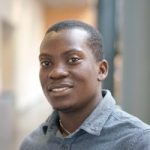 *Rogers Kaliisa, Norway
*Rogers Kaliisa, Norway
University of Oslo
Interest in Learning Analytics (Research Area, etc.) & Interest in serving on the SoLAR Executive Committee: Rogers is a current SOLAR executive member as a student member representative and co-leads SoLAR’s special interest working group and the Inclusion working group. During my term as a student member, together with Prof Paul Prinsloo, we managed to create and launch a special interest group called the African Network for Learning Analytics Research (ANLAR), which currently has a total number of 120 members. This network is expected to improve SOLAR’s visibility in the Global South, particularly Africa, which is currently under-represented in the LA community. In addition, as a member of the inclusion working group, I advocated for introducing a regional-based conference fee at LAK for researchers and students working in low-income countries. This policy was passed and will be implemented starting with LAK23. Building from this work during my first term as a student member representative, I wish to continue serving on SOLAR’s executive as a member at-large to consolidate the efforts I have started and ensure the expansion of the LA community in under-represented regions.
Biography: Rogers Kaliisa is a Postdoctoral Research Fellow in Learning Analytics at the Department of Education, University of Oslo, Norway. Rogers’ postdoctoral research uses multi-modal learning analytics approaches to understand and support students’ self-regulation behaviors during collaborative problem-solving in professional settings. He is also interested in the privacy and the ethics of learning analytics.
Working Group Interests: Special Interest Working Group and Inclusion Working Group
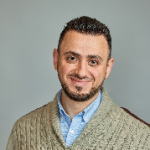 Mohammad Khalil, Norway
Mohammad Khalil, Norway
University of Bergen
Interest in Learning Analytics (Research Area, etc.) & Interest in serving on the SoLAR Executive Committee: My current duties involve doing comprehensive research on educational data with a major focus on Learning Analytics to support and personalise learning. Positioning learning analytics as a moral obligation and ethical practice is one of my research priorities and I would love to inspire the others in that direction. My interests to apply for the SoLAR Executive Committee are i) My passion towards the field and contribute to its advancement. ii) I am eager to play a role in shaping the direction of the field of learning analytics and have a direct impact on the use of data and technology in education. iii) Advancing learning analytics research and contributing as well as supporting new initiatives. iv) Highlight the field’s essence of being recognised as an inter-, intra- and multidisciplinary area requiring interdisciplinary work.
Biography: Khalil is a senior researcher and lecturer in learning analytics at the Centre for the Science of Learning & Technology (SLATE) within the Faculty of Psychology at the University of Bergen in Norway. Khalil, as an Erasmus Mundus granted scholar, has a Ph.D. with distinction from Graz University of Technology in Learning Analytics in Massive Open Online Courses (MOOCs). He worked as a Postdoc at Delft University of Technology for almost 2 years in Technology Enhanced Learning. Khalil leads several international projects in learning analytics, including Erasmus+ and PederSather projects. He is a guest editor of two special issues in the Journal of Learning Analytics (JLA) on Fairness, Equity and Responsibility in Learning Analytics and the British Journal of Educational Technology on Adaptive Support for Self-Regulated Learning. He has served as one of the workshop chairs for LAK’23.
Working Group Interests: Communication Working Groups; Events Working Group; ECR grant working group
 Rene Kizilcec, USA
Rene Kizilcec, USA
Cornell University
Interest in Learning Analytics (Research Area, etc.) & Interest in serving on the SoLAR Executive Committee: I have interests in learning analytics for self-regulated learning, predictive models of student behavior, and curriculum analytics with a focus on promoting equity. As a long-time follower of the LAK community and conference, I am interested to be more involved in the SoLAR EC.
Biography: Rene Kizilcec is an Assistant Professor of Information Science and director of the Cornell Future of Learning Lab. He studies the use and impact of digital technology in formal and informal learning environments, and scalable interventions to promote academic achievement and equity. His recent work is on academic progress and algorithmic transparency and fairness in predictive analytics in education. Kizilcec served as Program Co-Chair (2020) and General Chair (2022) for the ACM Learning at Scale conference. He received a B.A. in Philosophy and Economics from University College London, and a M.Sc. in Statistics and Ph.D. in Communication from Stanford University. Homepage: https://rene.kizilcec.com/
Working Group Interests: I am open to contributing to different working groups. My prior experience may be especially useful for the Education, Inclusion, and Communication groups.
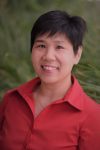 Lisa-Angelique Lim, Australia
Lisa-Angelique Lim, Australia
University of Technology Sydney
Interest in Learning Analytics (Research Area, etc.) & Interest in serving on the SoLAR Executive Committee: I have been actively involved in learning analytics since my PhD. My research has focused on the human element of learning analytics, in particular how students interact with and respond to personalised, data-informed feedback. In my research, I also seek to bridge learning analytics and educational theory as I believe that impactful learning analytics is grounded in educational theory. Drawing on my background in educational psychology, I strive to show how learning analytics feedback interventions are making an impact on students’ self-regulated learning, learning emotions, and belonging. This also means that learning analytics feedback interventions need to be carefully designed with feedback literacy in mind, in order to maximise its effectiveness for students. In relation to the design of effective feedback with learning analytics, I enjoy collaborating with educators to co-design learning analytics feedback, and designing professional development to build capability for educators as well as anyone who is interested in this area. In nominating for the SOLAR executive committee, I hope to further my contribution to the learning analytics community through my experience in working closely with stakeholders and the research community, and through my leadership skills in capability development.
Biography: Lisa-Angelique Lim is a postdoctoral researcher with the Connected Intelligence Centre at the University of Technology Sydney (UTS) Australia. Lisa obtained her PhD in education with a focus on learning analytics from the University of South Australia. Lisa’s primary research interests are in learning analytics feedback and human-centred AI. Lisa’s research focuses on understanding effective implementation of human-centred learning analytics in educational settings, as well as its impact on key stakeholders. Lisa has published in several top journals and conferences in the fields of education and learning analytics. In addition to research, Lisa’s work involves building educators’ capability development in the use of automated feedback, and co-designing learning analytics feedback with educators within their teaching contexts. She has also chaired or co-chaired a number of successful workshops in learning analytics feedback at LAK and LASI.
Working Group Interests: I am interested to contribute to two of the working groups: the Special Interest Groups working group; and the Communications working group.
 Catherine Manly, USA
Catherine Manly, USA
City University of New York Graduate Center
Interest in Learning Analytics (Research Area, etc.) & Interest in serving on the SoLAR Executive Committee: My research focuses on how flexibility in design and delivery of educational experiences can better meet under-acknowledged needs of students traditionally underserved by higher education. I am particularly interested in the atypical learning analytics approach of prescriptive analytics, which is facilitated by large, aggregated institutional datasets. Currently funded by SoLAR’s first-ever Early Career Research Grant, my work guides institutional implementation of prescriptive analytics based on such increasingly available data to better support students. This analytics approach projects predicted potential outcomes for individual students in different simulated worlds, allowing comparison of hypothetical future scenarios to make recommendations to students and inform course redesign. SoLAR has expanded my research network, including through the Doctoral Consortium, LASI, and LAK. Experiencing the community’s openness and support inspires me to encourage other aspiring LA researchers in developing international connections and collaborations. As an Inclusion Working Group member since 2018, I have contributed to the group’s initiatives and events (LAK Conference Scholarships, 2020 membership survey, LAK19 Speed Networking event), including organizing an upcoming LAK22 panel focused on inclusion. Through service on SoLAR’s Executive Committee, I seek to further foster the community and assist others in forming connections to innovate and improve LA research and practice.
Biography: Catherine Manly is a Postdoctoral Researcher at the City University of New York Graduate Center and a Professor of Practice in Educational Leadership at Bay Path University. She earned her PhD in Higher Education from the University of Massachusetts Amherst. She brings a social justice lens to quantitative investigation of transformational innovation in postsecondary education. Her research aims to improve affordable access and success for students underserved by traditional higher education, particularly through changes possible because of online and educational technologies. Current research aims at closing the performance gap for students across the full range of dis/ability, whether disclosed or not, even when efforts to anticipate and design for student learning requirements (such as through Universal Design for Learning) fall short and students struggle to learn. Her professional experience includes working as Director of Educational Technology and Distance Learning at Manchester Community College in Connecticut and as an educational technologist at Amherst College, where she earned her BA. Her work has been published in outlets such as Research in Higher Education, Review of Higher Education, and Higher Education: Handbook of Theory and Research. Her research is currently funded by the United States National Science Foundation and SoLAR.
Working Group Interests: Inclusion Working Group (current member), Membership Working Group
 Stoo Sepp, Australia
Stoo Sepp, Australia
University of New England
Interest in Learning Analytics (Research Area, etc.) & Interest in serving on the SoLAR Executive Committee: I’ve worked with teachers and students alike in their use of technology in higher education for almost 25 years and am interested in how educational data can support student self regulation of learning, as well as teaching practice. My research currently focuses on student perception of data collection for LA, student-facing learning analytics for the purposes of self-regulation, as well as novel methods in embodied learning, such as capturing gestures from touch-based and mixed reality applications. After attending various SoLAR events over the last few years, I’m keen to give back to the community to ensure that students, teachers and administrators in all educational sectors can effectively and ethically leverage educational data in a meaningful way.
Biography: Stoo Sepp is a Lecturer at the University of New England, Australia (UNE), where he teaches introductory courses in the integration of technology into teaching, and conducts research into student perception of learning analytics practices, including data privacy and disclosure. Prior to joining UNE, Stoo worked at the Faculty of Education at the University of British Columbia, Canada, co-founding and facilitating a Canvas API user group and supporting teachers in their use of Learning Analytics and working with UBC’s Learning Analytics community to explore new technologies, tools and evidence-based teaching and student-support practices.
Working Group Interests: Given my interest in research around learning analytics and educational data for teaching learning in multimedia, online and embodied learning contexts, I’m interested in serving on the Education Working Group to contribute to areas of research and grow international collaborations in this area. Additionally, sharing knowledge of educational practices and related professional learning opportunities for members and the public would be fantastic, so I’d also be interested in serving on the Website Working Group.
 Olga Viberg, Sweden
Olga Viberg, Sweden
KTH Royal Institute of Technology
Interest in Learning Analytics (Research Area, etc.) & Interest in serving on the SoLAR Executive Committee: My current research interest in learning analytics includes a focus on: 1) Responsible learning analytics and 2) Cultural aware learning analytics systems. Moreover, I am performing studies focusing on self-regulated learning, with a recent focus on affective learning states and cross-cultural LA research. My interest in serving on the SoLAR Executive Committee relates to my willingness to further develop the LA community by designing and facilitating practicable LA solutions across countries. We still need to work the increasing the impact of LA on learning and teaching.
Biography: Olga Viberg has obtained her PhD in Informatics at Örebro University School of Business (Sweden) in December 2015. Viberg is associate professor in Media Technology, with specialization in Technology-Enhanced Learning at the School of Electrical Engineering and Computer Science at KTH. She is also an active faculty member of Digital Futures at KTH. Viberg’s research includes a focus on learning analytics in higher education, self-regulated learning, cross-cultural research and responsible use of student data in education, focusing on the issues of privacy and trust. Viberg coordinates the Bachelor Degree course in Media Technology and a Master course in Technology-Enhanced Learning, as well as two PhD courses: Introduction to Learning Analytics and Research Methods in Technology Enhanced Learning and teaches several other courses at different educational levels. Viberg is an active member of the Digital Futures group on Educational Transformation at KTH and several other international networks (e.g., SIG Responsible Learning Analytics.) She has served as the keynote speaker at several prestigious international conferences (e.g. EDUCON, IMCL). Viberg has also contributed to the UNESCO policy work on quality of online education and gave a keynote speech in Nov.2021. Viberg is the main organizer of the Nordic Learning Analytics Summer Institute (2021 & 2022) and a part of the organizing committee of the 12th International Learning Analytics and Knowledge Conference. She is the PC chair for the next Learning@Scale 2023 conference and the next ECTEL2023. She serves as the Editor-in-Chief of the International Journal of Learning Analytics from Fall 2022- present.
Working Group Interests: Inclusion Working group, Education Working group
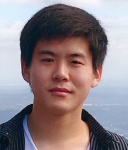 Jionghao Lin, Australia
Jionghao Lin, Australia
Monash University
Interest in Learning Analytics (Research Area, etc.) & Interest in serving on the SoLAR Executive Committee: My research interests in Learning Analytics (LA) include educational dialogue analysis, assessment feedback content analysis, and automated educational feedback systems. I’m looking forward to serving on the SoLAR Executive Committee, communications working group. The SoLAR community has some events, such as podcasts and webinars, which are good for researchers to know the development, culture, and history of the LA field. I’m interested in establishing communications (e.g., uploading LA-related content for some Chinese Multimedia platforms such as Tik-Toc, Bilibili, Zhihu, etc.) with the Chinese researchers and students in the LA field. Based on my experience in attending several Chinese conferences (themes related to Intelligent Education), Learning Analytics has gradually become the most popular topic in the current education research in China, and many researchers and students are interested in LA research. However, the contents (e.g., articles, short videos, blogs, and podcasts) related to LA are rare in Chinese multimedia platforms. To this end, I think that it is worthwhile to curate some content about the LA field in the Chinese Multimedia platforms.
Biography: Jionghao Lin is a final year Ph.D. student in the Centre for Learning Analytics at Monash University (CoLAM), Melbourne, Australia. He has been doing research in the CoLAM for the last three years. During that time, he focused on research related to Learning Analytics, Education Discourse Analysis, and Natural Language Processing. Specifically, he is mainly working on applying artificial intelligence technologies to analyse the instructors’ feedback (e.g., dialogue feedback and assessment feedback) and further use the findings to facilitate teaching practice and enhance student learning performance. His research outputs were recognised in many conferences (e.g., LAK and AIED) and journals. He obtained a Master degree of Data Science from the Faculty of Information Technology at Monash University in 2019.
Working Group Interests: Communications
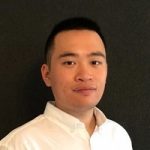 Yang Shi, USA
Yang Shi, USA
North Carolina State University
Interest in Learning Analytics (Research Area, etc.) & Interest in serving on the SoLAR Executive Committee: My research goal is to develop and leverage human-centered data-driven approaches for assisting and analyzing students’ learning computer science topics. Specifically, I create machine learning models to discover and detect programming bugs from students’ code submissions, predict student performance on future submissions, and detect students’ knowledge states on various concepts. To achieve this goal, LAK has been one of the major conferences I have attended in recent years. As I enjoy presenting my research in LAK, I also would like to serve back to the community. I want to apply to serve on the executive board as a student member. It benefits me as I can see my research agenda from a higher angle to bird-view the direction of learning analytics. Serving as an executive member of SoLAR can also benefit the community since my research area has been a unique combination in the SOLAR community. It can provide more diverse perspectives when making decisions. With experience in organizing workshops, building CSEDM communities, creating/indexing proceedings and websites for them, and leading discussions in paper sessions, I am most interested in leading event sessions and helping to build/promote websites, as well as establishing and building SIGs for SoLAR.
Biography: Yang Shi is a Ph.D. student and Goodnight Doctoral Fellow at North Carolina State University. He has been working towards building data-driven methods for representing program code to enhance the ability of Intelligent Tutoring Systems and benefit student modeling processes for computing education. His work has been published in multiple venues in this domain, including LAK, EDM, SIGCSE, etc. He has also won the Best Paper Award from EDM 2021 conference. With a focus on data mining approaches applied to CS education, his research interests also include programming language processing, software analysis, and deep learning. He has served as a program committee (PC) member in conferences across multiple disciplines, including LAK, EDM, AIED, KDD, AAAI, EAAI, SIGCSE, and ITICSE. He has also been serving as a co-organizer in CSEDM workshops since 2020.
Working Group Interests: I am mostly interested and experienced in events working group, website working group, and SIG working group. I have been organizing the CSEDM workshop for three years, and am responsible for creating the websites and proceedings for CSEDM for the past years. I have also been an organizer of CSEDM data challenge, which was in-coordination with SoLAR as well. I would like to join the membership of events and website working groups. For the SIG working group, I am mainly interested in encouraging SIG networking events (as I have also been working on fostering a CSEDM community), and will also propose a SIG in CSEDM in the coming few years after gauging interests from the community.
 Adele Smolansky, USA
Adele Smolansky, USA
Cornell University
Interest in Learning Analytics (Research Area, etc.) & Interest in serving on the SoLAR Executive Committee: As the founder of an Educational Technology (EdTech) company and researcher in accessible EdTech, I’m committed to ensuring diverse users are represented in learning analytics research. In my research, I will investigate how children with various cognitive and physical abilities learn, but I also want to raise awareness among other researchers. My goal is for more researchers to be aware of the complex needs of students with disabilities so special needs students are more represented in learning analytics. Within learning analytics, I am interested in researching how EdTech can support learning for diverse students. To optimize EdTech for children with disabilities, I believe we need to understand how a child’s brain changes as they learn and how we can apply artificial intelligence neuroscience to create effective EdTech interventions. For example, I want to research how developmental disorders like autism, dyslexia, and dyscalculia affect brain development and how we can use artificial intelligence to model student learning. By sharing my research and knowledge about how children with disabilities learn, I hope to inspire more individuals to conduct studies with diverse populations. As a member of the SoLAR Executive Committee, I could advocate for people with disabilities.
Biography:My name is Adele Smolansky, and I am an undergraduate senior studying Computer Science at Cornell University. Starting Fall of 2023, I will pursue a PhD at the intersection of education, computer science, and neuroscience to increase our scientific understanding of how children learn and how educational technology can improve student learning outcomes. My younger sister Lara has a severe neurological disability called Rett Syndrome. After my freshman year at Cornell, I founded AI-Learners, an educational technology company that helps kids with disabilities learn math. I’ve seen the great benefits of personalized learning for students with disabilities, but to truly maximize learning outcomes, I believe we need a deep understanding of how to apply artificial intelligence and neuroscience to education. I am now conducting research at two Cornell University research labs. At the Future of Learning Lab, I’m exploring how adaptive EdTech math games can help children with cognitive disabilities learn math. At the Enhancing Ability Lab, I’m investigating the accessibility of EdTech games for students with physical and cognitive disabilities. I’m looking forward to continuing my research in graduate school.
Working Group Interests: Education Working Group
Voting Information: All SoLAR individual and students members are eligible to vote for all positions. Links to access the online voting system will be sent to SoLAR members through SurveyMonkey via email starting on January 20, 2023 (Eastern Time). Voting will end on February 3, 2023 at 11:59pm Eastern. All members who join SoLAR by February 1, 2023 will be eligible to vote and will receive a ballot after successfully joining SoLAR. Any questions, please email solarsocietymgmt@gmail.com.
